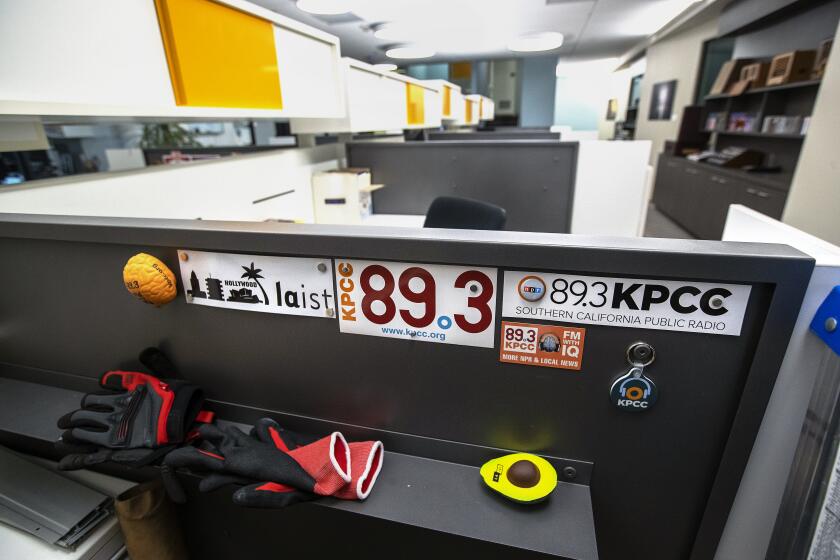Your Mortgage : Should He Spend $250 to Prepay Mortgage?
QUESTION: I have been approached by a friend at work to sign up for a plan that will pay off my mortgage in about 20 years, instead of its remaining 29 years.
This friend sells a program which for $250 will take my biweekly mortgage payments from me and pay my lender the equivalent of 13 monthly payments each year.
The result would be that I save about $27,000 in mortgage interest. I realize that all I need to do is make 13 payments every year to achieve the same result. But the only thing which really appeals to me about the plan is that every two weeks a payment will be deducted from my checking account so I will never be late with a mortgage payment.
In the past, this has been a problem for me. Do you think I should sign up?
ANSWER: No. Save the $250. If you really want to save thousands of dollars of mortgage interest, just add one-twelfth of your regular payment to each monthly mortgage payment. A little self-discipline is all you need.
Suppose $1,000 is your monthly mortgage payment. One-twelfth of that is $83.33. If you pay $1083.33 each month, with the extra $83.33 going toward principal balance reduction, you will make the equivalent of 13 monthly mortgage payments each year.
The result will be about the same as if you trust your friend’s company to deduct biweekly payments from your checking account.
There is always the possibility that the mortgage prepayment company would collect payments but not remit them to the lender.
Additional problems could develop if property tax and insurance impounds are collected each month.
This is your money, so you are in the best position to increase your minimum mortgage payment, thereby shortening your mortgage and saving thousands of interest dollars.
Discounted Mortgages: How Do They Work?
Q: Some time ago, you recommended investing in discounted mortgages. At the time, I wasn’t interested, but I recently inherited more than $100,000 and am looking for a good place to invest this money for the highest possible yield. Do you think discounted mortgages are good investments?
A: Yes. However, as with any investment, there are good discounted mortgages and bad ones. Before you invest, please investigate carefully. The high yields of close to 20% are very attractive.
But remember, the higher the yield, the higher the risk. Learn all you can about discounted mortgages.
For starters, I recommend reading Jimmy Napier’s classic book, “Invest in Debt,” available for $12 postpaid from Jim Napier Inc., P.O. Box F, Chipley, Fla. 32428. After you thoroughly understand that excellent book, then read “The Number One Real Estate Investment No One Talks About” by Sanford W. Hornwood and I. Lucretia Hollinsworth, available in stock or by special order at local bookstores.
How Much Can Buyer Borrow to Buy Home?
Q: How much can I expect to borrow when buying my first home? Is it possible to buy with no down payment since I have a good job?
A: Yes, it is possible to buy a home for nothing down. Thousands of eligible veterans do so every month with VA home loans. Or you may be able to get an anxious seller to finance all or most of your home purchase. But the hard part of buying for nothing down is making the payments.
The more traditional ways of buying homes involve down payments of 5%, 10% or 20% and mortgages for 95%, 90% or 80% of the sales price.
FHA and PMI mortgages offer 90% and 95% financing, whereas conventional 80% mortgages are available from virtually every S&L;, bank and mortgage broker. Ask nearby real estate agents for the best sources of local financing because they usually know the good and bad lenders.
Don’t Pay Off Low-Rate Home Mortgage Early
Q: Our home has a 7.75% interest rate mortgage with about $23,000 remaining. We can pay off this mortgage from a recent inheritance. Do you think we should pay off this loan early?
A: No. Your lender will hug and kiss you for paying off that bargain mortgage. But you can earn more than its after-tax cost, around 5%, and you will have $23,000 cash available for emergencies and other investments. Only if your lender will give you a discount of at least 10% of the loan balance for early payoff would it make sense to even consider paying off your low-interest rate mortgage.
Fixed-Rate Mortgages Better Than Adjustable
Q: Recently you said fixed-rate mortgages are a better deal than adjustable-rate mortgages. Please explain.
A: Adjustable-rate mortgages shift the lender’s risk of rising interest rates to the borrower.
If the borrower is to take over this risk, the borrower should be compensated in the form of a lower interest rate. But the greedy mortgage lenders have lost sight of this reality. The interest rate difference between fixed and adjustable loans used to be about 2%. Today it is nothing, after the initial “teaser rate” adjusts to the full indexed interest rate.
To illustrate, suppose you are considering a fixed-interest rate loan at 10%, or an adjustable-rate mortgage indexed to the Cost of Funds Index, with a margin of 2%.
The index as of this writing is 8.60%. That means your adjustable-rate mortgage would cost 10.6% (8.60% plus 2%) after its initial below-market teaser interest rate, which is currently around 9%. Anyone who can qualify for a fixed-rate mortgage is obviously better off taking the fixed rate.
Carry-Back Mortgage: Seller Helps Finance
Q: Several times you recently said a buyer who wants to buy a home with little cash should find a seller who will carry back the mortgage. Please clarify what that means.
A: A carry-back mortgage, or a take-back mortgage, is one the home seller offers to help finance the buyer’s purchase. Instead of the buyer borrowing money from a bank or S&L; to buy the home, the buyer borrows from a seller who carries back a first or second mortgage.
To illustrate, suppose you have $10,000 for a down payment on a $100,000 home. It has an assumable $50,000 VA first mortgage.
That leaves a $40,000 finance gap which the seller can fill by carrying back a $40,000 second mortgage.
The happy result is you buy the home for a modest down payment, assume the first mortgage and the seller receives a handsome interest rate on the second mortgage.
Many sellers gladly take back a first or second mortgage, which pays higher interest than they can earn elsewhere.
Home-Loan Fees Not Universally Deductible
Q: A few weeks ago, you told a home buyer he could deduct as itemized interest the loan fee he paid to the mortgage company to obtain a home loan.
Does the same rule apply to refinancing a home loan and to obtaining a new mortgage to buy income property such as apartments?
A: No. The only time a loan fee paid to obtain a mortgage is fully tax deductible as interest in the year paid is when the loan is an acquisition mortgage to buy your principal residence.
Other loan fees paid to acquire or refinance real estate must be amortized (deducted) over the life of the mortgage.






